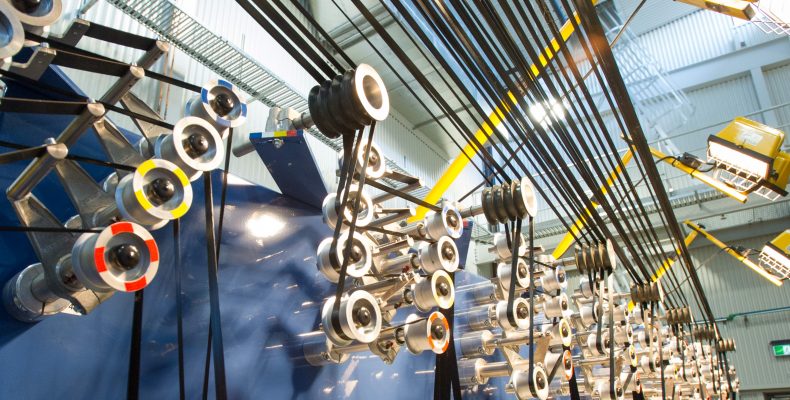Deakin University’s Carbon Nexus, an open access carbon fibre and composite research facility, has been featured in the leading US magazine, Aerospace Manufacturing and Machining, with a focus on the organisation’s novel rapid oxidation technology.
The feature article, “Scaling Low-Cost Carbon Fiber Production with Oxidation Technology” highlights the energy and cost savings made possible by the new technology. The rapid oxidation process developed by Carbon Nexus, and since licensed to LeMond Carbon Carbon, uses up to 75 per cent less energy compared to the conventional approach. The new process of manufacturing carbon fibre not only diminishes oxidation time, it also increases production capability by 360 per cent.
The remarkable reduction in oxidation time from 80 – 110 minutes down to less than 15 minutes also has a significant knock-on effect on the overall footprint of the carbon fibre production. Fewer gaseous emissions, a smaller infrastructure footprint, and of course less capital allows manufacturers to downsize their operations while still meeting the needs of their customers.
These benefits mean carbon fibre can be more accessible than ever, opening the door for new markets and new innovations where the costs associated with carbon fibre production once rendered such technologies inaccessible.
An independent technical audit by Bureau Veritas (BV), a world leader in laboratory testing, inspection, and manufacturing processes, validated that the rapid oxidation technology delivers on its promise to significantly reduce oxidation process times while continuing to produce a high performing carbon fiber end product.
From September 30 2020 to January 31 2021, Carbon Nexus has available capacity on their Pilot Line. The carbonisation line enables researchers and manufactures to explore new processing techniques and validate their new technologies on an industrial scale up to 100 tonnes per annum.
Sep 2020
